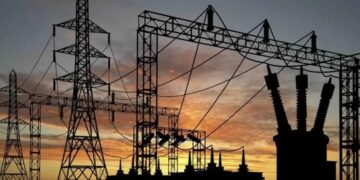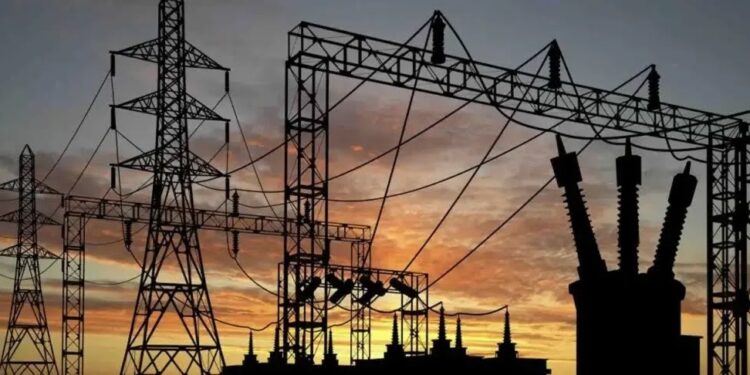By Enyichukwu Enemanna
Major cities in Nigeria are currently witnessing power outage following the shutting down of the National Grid by organised Labour that commenced a nationwide strike on Monday, pushing for minimum wage increase from the current N30,000 to N494,000, an amount the Nigerian Government says it lacks capacity to pay.
Arising from the strike, flight operations were also disrupted and air passengers stranded across the country as the indefinite strike took effect after Labour and government failed to reach an agreement during marathon meeting on Sunday.
This strike is the fourth embarked upon by the Nigerian Labour Congress (NLC) and the Trade Union Congress (TUC), two of the country’s biggest unions, since President Bola Tinubu took office last year from Muhammadu Buhari.
Members of organised Labour drove away operators at the country’s power control rooms and shut down at least six substations, which eventually shut the National Grid at 02:19 am (0119 GMT), the Transmission Company of Nigeria (TCN) stated.
Abuja and neighbouring states, including Niger, Kwara, and Nasarawa were in total darkness from early hours of Monday when the National Grid was shut down.
In the Southeastern states of Abia, Imo and the Southsouth of Delta State, businesses were also grounded as a result of the power outage.
Also, indigenous airline, Ibom Air said it was suspending flights until further notice due to the strike, while another, United Nigeria, said airports across the country have been shut down and that striking workers had permitted none of its flights to operate.
Earlier, aviation unions comprising the National Union of Air Transport Employees (NUATE), Air Transport Services Senior Staff Association of Nigeria (ATSSSAN), Association of Nigerian Aviation Professionals (ANAP), National Association of Aircraft Pilots and Engineers (NAAPE) who are affiliated to either NLC or TUC had announced that they were joining the strike declared by Organised Labour.
Labour had on Friday declared an indefinite strike after talks for a new minimum wage meant to cushion the impact of reforms collapsed. They said the strike would last until a new minimum wage was in place.
The government however says it cannot pay beyond N60,000 as minimum wage, citing the country’s state of economy. Intervention of National Assembly leadership on Monday night to persuade Labour to disembark on the planned strike failed.
Unions have also demanded a reversal of an electricity tariff hike effected last month for better-off consumers who use the most power, as the government tries to wean the economy off subsidies.
Both electricity and aviation unions said in a statement on Monday they had directed their workers to withdraw their services in compliance with the indefinite strike.
The removal of subsidy on petrol when Tinubu came to power has fuelled inflation and put pressure on the already high cost-of-living, putting the government on the pressure to embark on reforms that will mitigate economic challenges faced by families and businesses across the West African nation.
The TCN said it was making effort to recover and stabilize the National Grid, but unions were obstructing grid recovery nationwide.




































